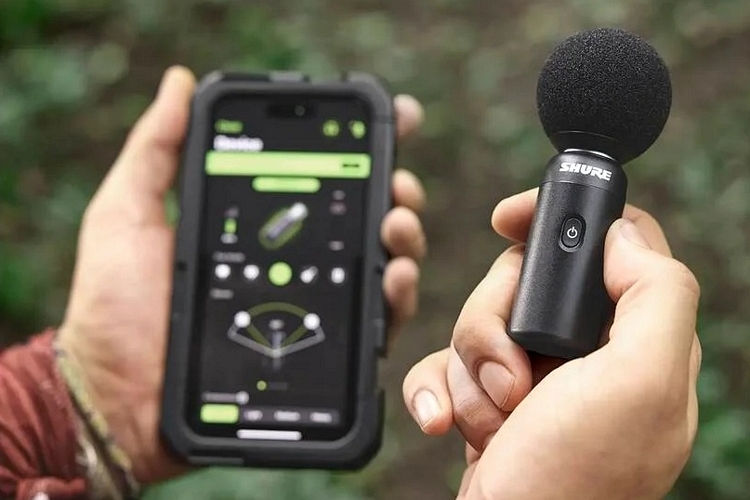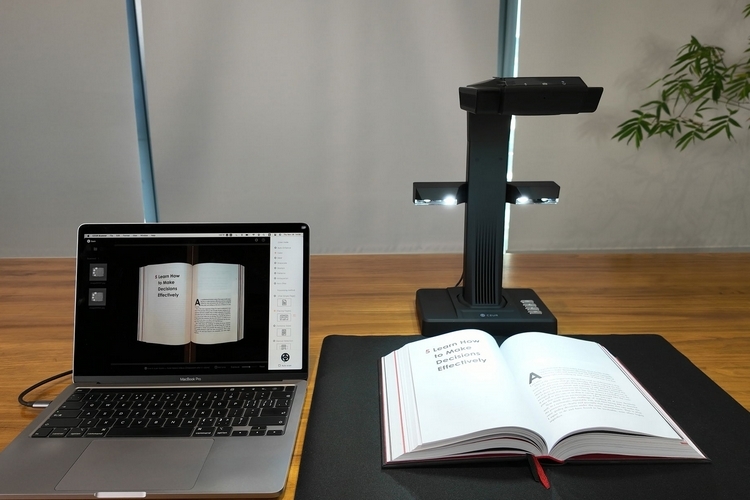![]()
Smartwatches, sports watches, and fitness bands are great for gathering general health and fitness information. However, they still wear very prominently on your wrist, which may not be ideal if you prefer wearing jewelry or more traditional watches instead. That’s why smart rings have attracted so much attention in recent years, as they can handle all the basic health and wellness tracking that smartwatches do, all while wearing very discreetly on one of your fingers.
Subtlety is the smart ring’s biggest strength. They don’t have large screens that grab attention or thick bands that can clash with an outfit. Sure, the lack of an informative screen means you’ll have to use your phone to check on any of your stats, but most people do find that more comfortable than trying to scroll through the tiny displays on smartwatches and fitness trackers.
Smart rings can handle many of the tracking that wrist-based wearables do. For instance, can register every step, measure body temperature, monitor heart rate, and keep a close eye on your physical recovery. Sure, there are obvious size limitations, so they can’t quite have the exact same set of sensors as wrist-based devices, but they can track basic physical activity, sleep, and general wellness just fine at a decent precision, which makes them quite the attractive alternative. Do note, they still lag a fair amount when it comes to precise tracking for workouts, but it’s something we can see it hopefully getting better at down the line.
These are the best smart rings for more discreet health and wellness tracking.
RingConn Smart Ring
![]()
Pros
- Long battery life
- Extensive data gathering
- No subscription fees
Cons
- App is not easiest to use
- Syncing with the app can take a few minutes
Material: Titanium
Available sizes: 6 to 14
Battery life: Up to 7 days
Compatibility: iOS, Android
We like this smart ring’s slightly squared-off shape, which gives it a bit of a flair you don’t quite get with your standard ring shape. It has a nice slim fit, with a beautiful finish that doesn’t scratch as easily as some other smart rings we’ve tested. However, what makes it really good is the tracking capabilities, as it really collects a surprising amount of data, allowing it to provide a detailed log of your overall health and fitness metrics. There’s so much, in fact, you’ll likely feel overwhelmed the first time you open the companion app, since it really requires some amount of time to get acquainted before you understand where each particular data point is located. It’s a little frustrating if you just want to quickly check your calorie use or overall sleep score, but having all that information easily available does end up being a positive, especially when you want to do deep dives into your metrics.
Ringconn promises around to five to seven days of battery life, which we’ve found to be accurate, with the ring always going past six days between charges. We also like that it’s more affordable than other smart rings today, especially since the app doesn’t require any kind of subscription.
Amazfit Helio Ring
![]()
Pros
- Excellent for sleep and recovery tracking
- Perfect for Amazfit sports watch users
Cons
- Limited sports features
- Only two sizes available
Material: Titanium alloy with resin liner
Available sizes: 10, 12
Battery life: Up to 4 days
Compatibility: iOS, Android
Smart rings are still not at the point where they can perform activity tracking as well as your favorite GPS sports watch. As such, Amazfit’s smart ring focuses on what it can do best, which is sleep tracking, stress monitoring, and recovery monitoring, which it does by keeping tabs on your heart rate, temperature, blood oxygen saturation, EDA stress response, breathing quality, and sleep quality. It can measure how well you’ve recovered and even put a score on your readiness to perform more demanding physical activities.
The device does have some sports tracking features, since it comes fitted with a three-axis IMU and a three-axis gyroscope. However, it’s pretty limited, with only four sports modes available. Instead, the outfit recommends using their sports watches for tracking those, while offering a facility to merge data from both devices, so you can see all your metrics from a single screen. Do note, it only comes with trials for both the comprehensive Zepp app, so you’ll have to pay the monthly if you want to use it going forward.
Oura Ring Gen3
![]()
Pros
- Excellent sleep tracking and stress monitoring
- Highly actionable data and metrics, with clear explanations
- Performs basic activity tracking decently
Cons
- Requires monthly subscription
- Scratches easily
Material: Titanium with PVD coating
Available sizes: 6 to 13
Battery life: 4 to 6 days
Compatibility: iOS, Android
Oura, pretty much, pioneered the smart ring category the way we know it today and it continues to be the best among the growing number of options. We love how it seems to sync continuously with the app, so that each time you check, you can see your current activity, sleep, and recovery data with no waiting times. It collects a vast amount of data and presents it in a very digestible way from the app. Seriously, the way the app is laid out is probably one of our favorite things about, as it makes finding any information you want a relatively easy affair. We also appreciate the detailed explanations for each metric, graph, and chart, as it ensures you won’t have to spend any time trying to figure what each of the figures mean.
It also has workout tracking, although it’s still limited to only five sport modes, namely outdoor running, indoor running, outdoor cycling, indoor cycling, and walking. For many people, though, that would probably cover most of their needs, making it a genuine replacement for a dedicated sports watch. Like a few other smart rings, the Oura has a paid subscription that requires a monthly fee for access to more advanced metrics and additional content, leaving you with a very limited experience if you don’t fork out for the recurring cost.
Ultrahuman Ring Air
![]()
Pros
- Offers more workout modes compared to others
- Regularly provides useful, actionable insights
- No subscription required
- Rated to survive up to 330 feet of water
Cons
- Ring can get hot after charging, so wait a bit before wearing
Material: Titanium with tungsten carbide coating
Available sizes: 5 to 14
Battery life: Up to 6 days
Compatibility: iOS, Android
Among the smart rings in the market, this one arguably has the most comprehensive workout tracking with over 20 workout modes available. It’s still far from as good as what you can get from a smartwatch, but it’s continuously getting better, so we have really high hopes for it going forward. The ring collects a lot of data and presents it in a way that fitness enthusiasts and athletes will probably appreciate, with plenty of actionable insights into a whole host of activities you can do further improve your numbers. That makes it really useful for those who need extra help figuring out what they actually need to do. We also love that the app’s homepage gives you all pertinent data at a glance, making it easy to quickly check specific metrics, whether it be heart rate data, body temperature readings, or anything else.
Unlike the Oura, there’s no subscription model here, so you can get your full information without any recurring costs. Heck, the app even has a section that offers video classes for various workouts, meditation recordings, and more, all for free, too, which is terrific value. We also like the coating on the ring, which holds up really well to scratches, so this thing won’t look scratched up like some other smart rings we’ve used.
Samsung Galaxy Ring
![]()
Pros
- Tight integration with Samsung devices
- Promising new entry in the category
- No subscription
Cons
- Only works with Samsung phones
Material: Titanium
Available sizes: 5 to 13
Battery life: Up to 7 days
Compatibility: Android
We weren’t sure if we should include this one, since it’s very new, but we have a feeling Samsung will throw a lot of weight behind their smart ring and make it a relevant player in the space. First thing you have to know is, this only works with Samsung phones, since it requires the Samsung Health app that isn’t available on iOS. The feature set doesn’t veer away from what other smart rings offer, either, so there’s sleep tracking, recovery monitoring, and activity tracking. The activity tracking is rudimentary, only working with walking and running, although Samsung does it claim it can track both of those automatically, which would be convenient, since many other smart rings require you to specifically trigger the workout mode from the app. How good will its sleep and recovery features be? That’s not something we’ll know until we’ve spent a bit of time with the wearable, although the stuff we’ve seen online so far seems to suggest it’s going to be competitive with what the best players like Oura and Ultrahuman are doing.



